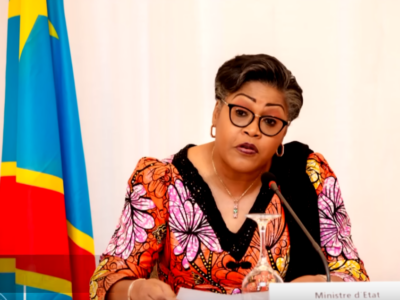This post is part of our special coverage Languages and the Internet.
The last speaker of the ancient Bo language, Boa Senior, has died in her native Andaman Islands (part of India) in February 2010. It's a vivid confirmation of last year's report from UNESCO, warning that 2,500 languages are at risk of disappearing.
Video: Boa Senior singing in her native Bo, via Survival International
In her Minnesota-based True to Words blog devoted “to the exploration of language and writing,” Sara Duane reports the news and adds that some formerly dead languages have recently revived:
In 1992 a prominent US linguist predicted that by the year 2100, 90% of the world's languages would have ceased to exist. One of those languages died last month when 85-year-old Boa Sr. passed away. She was the last speaker of Bo, which at 70,000 years was one of the world's oldest.
[..]
Languages can be brough back from the brink, or even from total extinction, if the will is strong enough and most importantly, if enough of it has been written down. Hebrew was a dead language at the beginning of the 19th century. It existed as a scholarly written language, but there was no way to know how the words were pronounced. Persistence and will from Israeli Jews brought the language back into everyday use. There has also been a revival of Welsh in the UK and Maori in New Zealand.
Transubstantiation, which described itself as trying to “make sense of the legacy of the Tower of Babel,” suggests documenting dying languages:
If we are able to preserve language life then by all means let us preserve it. However, sometimes this is not possible and then perhaps our most important task as linguists is to analyse, describe and document; set the dying language down so that we can use knowledge about it to further research into the general understanding of the human condition.
Madhu Baganiar, who belongs to the indigenous Oraon (Kurukh) community comments on the demise of Bo language with the death of Boa senior:
Every language has its own unique history, culture style, story. When a language dies, a vast store house of knowledge associated with the language also dies. Today, a living tribal language “Bo” has died. Tomorrow more tribal languages of India are bound to die. There are hundred of reasons which will kill the living tribal language…
Ireland-based blogger The Poor Mouth mourns the loss of Bo, and says:
Languages come and languages go – we can see the traces of several lost languages in the British Isles (Yola, Norn, Cumbric etc) – but I can’t help feel that when they die something significant is lost from the rich, dark soup that makes up humanity. Boa’s passing diminishes us all.
This post is part of our special coverage Languages and the Internet.








3 comments
it’s sad to hear but things perished are things discovered…
How can we know a language existed “70,000” years ago? I agree that issues of language extinction are important, but the implication that a language has existed, unchanged, for 70,000 is irresponsible. All languages go through changes through time–Imagine if you had to give a presentation in Middle English to save your job? The difference between that kind of English and what we speak now is separated by a comparatively brief 600 years. What chances when you’ve had 70,000 years?
Although it is sad and a great loss for humanity when any language goes extinct, we need to be aware of how we represent such changes. Our assumption about languages can actually contribute to the extinction of languages.